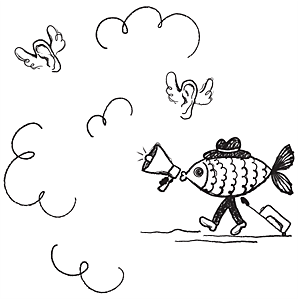
Image credit
There are many sources of inequality in the world, most of which escape my resources, talent, and imagination to resolve. However, one thing I know is that making sound decisions in specific moments leads to a compounding effect that can set a person on a trajectory of success or failure down the line.
People find trouble making sense of uncertainty, but in 2020 the specific framework necessary to describe the dynamics of a pandemic made it more apparent. Policymakers, journalists, experts, and commentators from every field under the sun started speaking the language of probability, statistics, risk, and uncertainty. They did it poorly, and that gave me the final push to start this series.
But I’m not concerned about what we do in the face of a “rare” event like the COVID-19 crisis. What troubles me is that uncertainty is a common element to every decision we make, day in and day out. So, how come we are so bad at dealing with it?
Don’t ascribe to malice what can be adequately explained by incompetence.
- Carl T. Bergstrom and Jevin West.
Mind the Tail is my attempt at demystifying decision-making. This started with kids at public schools in Colombia: Teaching them how to read charts, how to make back-of-the-envelope calculations to make decisions about everyday things, or before swallowing what they see on a screen. I provide them with models to help them decide what to do "next time". Here I will do the same for a wider audience.
As Professor Scott E. Page notes in his book “The Model Thinker”, three decades ago people using models were those dealing with large amounts of data: People in Finance, Intelligence, or Academic Research among others. Now, as technology has supercharged our ability to acquire, process, stream and, more importantly, query data in a contextually-meaningful way, information workers have multiplied and so the spectrum of model-thinkers widened.
Unfortunately, I see a tendency driven by the same technological progress to skip from highly trained professionals to automated systems, creating the idea that the vast majority of people don’t have to acquire knowledge in a domain that will help them think clearly in every other aspect of their lives. (How come Calculus and Trigonometry are core subjects in high school but statistics is not? Which are you more likely to use regardless of your career or occupation?)
Basic education systems have failed to deliver the foundations of statistical reasoning at a great cost. I aim to help to bridge a literacy gap that for a lot of people has a far greater impact than making bad tweets. It gets them into debt and get-rich-quick schemes, as well as other taxes on the poor.
So if you are an expert in this field, skip these emails (or not and send me your feedback and comments!) But if you feel like you could use some additional tools on your belt to help you make better decisions, fill the box below and I will hit your inbox every week.